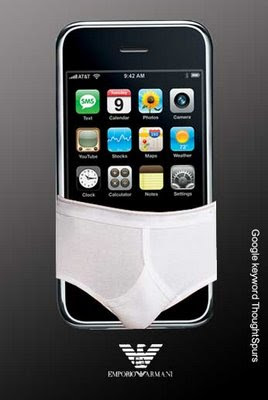
Celebrity is a funny thing - funny peculiar, that is.
For some reason you think someone nice looking, with a talent of some kind or other (playing games like soccer, singing, showing up at parties where free drinks flow like wine - that sort of thing).
Media need nice looking people to fill pages and screens. Consumers aren't so willing to fill them with ordinary folk. Life goes easier when we see what we'd like to be like, rather than who we are. After all Hello magazine isn't a celebration of normality (that would be obscene and too uncomfortable to look at).
So it is the natural and logical progression that marketers would enlist the celebrity of nice looking individuals and leverage their ubiquity in the media time and space that they, under normal circumstances, would have to pay richly for.
Why not enlist Britney, George, Becks, or whoever is topping the Google search charts?
Well, there are some reasons:
According to Datamonitor an aging population means that audience growth is slowing. Marketers must pursue new tactics to avoid the pitfalls associated with celebrity-backed campaigns or celebrity-branded consumer packaged goods.
The celebration of fame has witnessed a dramatic upsurge in recent years, with reality TV, celebrity gossip magazines and the Internet providing a 24-hour source of celebrity information.
However, Datamonitor's report says that this "explosive phenomenon" faces growing challenges, as many consumers are reaching saturation point and suffering from "celebrity fatigue".
Celebrities endorse too many different products. This undermines both the individual's and the brand's credibility (in it for the money - not a genuine endorsement - biased).
Take soccer cult hero/heart-throb David Beckham: he is featured in campaigns for products as diverse as: Gillette, Pepsi, and erm… Sharpie pens. He is currently working for Emporio Armani underwear.
The report says celebrity scandals or falling status degrade the brand and, if the celebrity's own brand is too strong it can eclipse the brand they are endorsing.
The report says products themselves will be the next generation of celebrities - iPods and iPhones are no longer simply products - they have identities and personalities of their own.
Datamonitor reckon "Consumers' relationship with these celebrity-like branded products are based heavily on participation and interaction, two behaviours that are desired, but rarely achieved by everyday people in their relationships with actual celebrity idols."
If you are thinking of plunking down a chunk of change to bask in the fame of George Clooney or a Shortland Street star then make sure the idea behind the campaign is a clear, strong brand message. The celeb should increase positive associations with your product - not supersede it.
It is also worth considering that super-stardom in one area might not travel to your brand. Gene Simmons is a celebrity known across the globe (and probably the rock equivalent of George Lucas when it comes to profiting from merchandise). Simmons rocks, but it's probable that he wouldn't play well with with Tena pads (though who knows - you decide).
Comments
Post a Comment